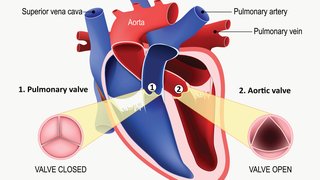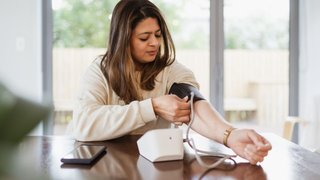
There’s a rhythm to our lives. Day, night, awake, asleep.
The sleep portion of that cycle is a biological necessity. Though scientists are still trying to unravel what happens in our brains and elsewhere in our bodies during sleep, there’s no question that it’s an essential function. Ask any parent of a newborn!
What many people don’t realize is that the amount of sleep you get and when you sleep directly affects your heart health. For example, a 2016 study suggests that nurses who work rotating night shifts are at greater risk for heart disease than their dayshift peers, even after factors such as smoking and diet are taken into account. In fact, not sleeping for a long enough period, around eight or 10 days, or in rare circumstances, even result in death.
Let’s take a look at why our bodies are programmed differently for day and night, and how you can improve your sleep habits – and potentially reduce your risk for heart disease.
Why day and night matters when it comes to sleep
Your body is programmed to do certain things during the day when you’re awake and other things at night when you’re asleep. Certain hormones, for instance, are released at night while others peak during the day.
Circadian rhythm, our natural 24-hour cycle of alertness and sleepiness, exists at a physical, mental, behavioral, and even cellular level. Every cell in our body goes through this daily cycle – including fibroblasts in our hearts. Certain genes also are turned on in the morning and shut off at night.
Disruption of this cycle and lack of sleep causes problems. I travel a lot as part of my work, and I’m well aware of the havoc caused by being physically out of sync with the local time zone. Jet lag can take a few days to overcome, depending on how tired you were when you left and how far you traveled.
Sleep deprivation symptoms include:
- Feeling sleepy when you’re supposed to be awake and alert
- Having a headache or lightheadedness
- Feeling irritable
- Having a lack of energy
- Experiencing low mood (akin to depression)
- Having poor concentration
How sleep deprivation affects the heart
Many people suffer from insomnia (difficulty falling or staying asleep) or sleep apnea (a temporary stoppage of breathing that occurs during sleep and often causes snoring). These sleep disorders often get worse as we age and can have consequences beyond the obvious ones of feeling muddle-headed and tired the next day.
One of the potentially most dire consequences of these effects is their contribution to heart disease. Poor sleep quality in general, and especially sleep apnea, is associated with an increased risk of high blood pressure. High blood pressure is a major risk factor for ischemic heart disease, including heart attack and congestive heart failure.
Sleep issues may contribute to heart disease in other ways, as well. Sleep deprivation causes the metabolism to slow, which can lead to weight gain. Excess weight is strongly associated with diabetes, another leading risk factor for heart disease.
People who are sleep-deprived are less likely to get the exercise they need. At the risk of sounding like a broken record, my colleagues and I can’t emphasize enough the importance of exercise to your heart health. But motivating yourself to exercise when you’re alert can be challenging – when you’re already tired, it can be a losing battle.
Sleep-deprived people also are more likely to eat poorly. Patients tell me they reach for junk food and caffeinated drinks when they’re tired. When you consume junk food and unhealthy drinks, you dump sugar, caffeine, and empty calories into your system. Though you may get a quick jolt of energy from junk food, the crash that inevitably comes a few hours later can make you feel even more tired than you were to begin with. You’d be better off grabbing an apple or another crunchy fruit or vegetable or a cold glass of water to wake you up again. If you opt for coffee, drink it black. Stirring in creamer, sugar, and flavorings can quickly pile on empty calories.
Tips for getting better sleep
Rather than skipping the gym or hitting the junk food, focus on changing your sleep habits. Here are some simple suggestions for getting a better night’s sleep:
- Exercise every day that you can, though not late in the evening.
- Avoid caffeine late in the day (that includes iced tea and cola drinks).
- Avoid electronic devices (computer, phone, television) for an hour before bedtime.
- Establish a bedtime routine with soothing activities such as a hot bath, meditating, or reading.
If your job requires you to work rotating night shifts – or strictly at night – maintaining a health sleep schedule can be especially difficult. It’s tough to get a solid day’s worth of sleep when you may have family needs to attend to, appointments that can occur only during the day, or the full glare of the sun beating into your bedroom.
I advise my nightshift patients that it’s not selfish to ask family and friends to keep daytime interruptions to a minimum. It can be tough missing out on activities and family time that occurs during the day – especially on the weekends – but sleep is a basic human need that affects your health. In the long run, your heart health is worth it.











